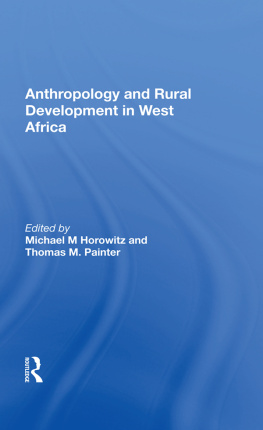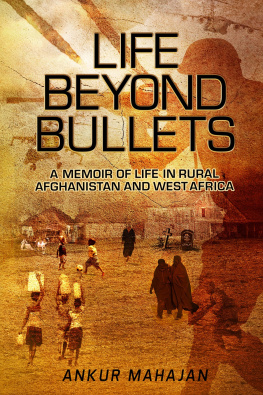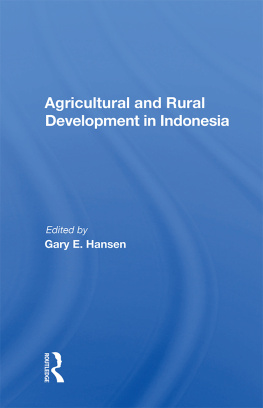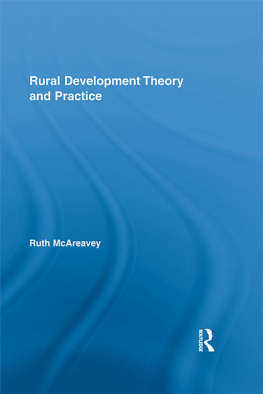About the Book and Editors
Anthropology and Rural Development in West Africa documents the experiences of anthropologists with development in West Africa during the past ten years. It presents case study material to bring out the actual and potential contributions of social science to solving development problems found in Africa and in other parts of the Third World. The book is not a manual that seeks to present solutions; rather it describes some of the kinds of development situations in which anthropologists participated and examines the kind of tensions under which they operated.
Michael M Horowitz, professor of anthropology at State University of New York, Binghamton, is director of the Institute for Development Anthropology, also in Binghamton. Thomas M. Painter is a research associate at the Institute and a doctoral candidate in sociology and development anthropology at the State University of New York, Binghamton.
Monographs in Development Anthropology
Under the General Editorship of
DAVID W. BROKENSHA
MICHAEL M HOROWITZ
and
THAYER SCUDDER
Sponsored by the Institute for Development Anthropology
First published 1986 by Westview Press
Published 2018 by Routledge
52 Vanderbilt Avenue, New York, NY 10017
2 Park Square, Milton Park, Abingdon, Oxon OX14 4RN
Routledge is an imprint of the Taylor & Francis Group, an informa business
Copyright 1986 by the Institute of Development Anthropology
All rights reserved. No part of this book may be reprinted or reproduced or utilised in any form or by any electronic, mechanical, or other means, now known or hereafter invented, including photocopying and recording, or in any information storage or retrieval system, without permission in writing from the publishers.
Notice:
Product or corporate names may be trademarks or registered trademarks, and are used only for identification and explanation without intent to infringe.
Library of Congress Cataloging-in-Publication Data
Anthropology and rural development in West Africa.
(Monographs in development anthropology)
Bibliography: p.
1. Applied anthropologyAfrica, WestAddresses,
essays, lectures. 2. Rural developmentAfrica, West
Addresses, essays. lectures. 3. Technical assistance
Africa, WestAnthropological aspectsAddresses,
essays, lectures. I. Horowitz, Michael M, 1933
II. Painter, Tom. III. Series.
GN397.7.A358A571986307.1496685-20274
ISBN 0-8133-7149-X
ISBN 13: 978-0-367-00865-9 (hbk)
This book is the result of a long effort by persons within and without the Institute. Acknowledgments of help given by fellow staff members often take the form of blanket thanks to colleagues, but we would like to take exception to this practice and indulge ourselves in this first volume of the IDA Monograph Series. All along, we have benefited from the encouragement of all IDA folk. At numerous points along the way, careful copy-editing and critiques were provided by Michael Painter, Peter Little, and Muneera Salem-Murdock. Vera Beers typed and retyped many earlier versions of the manuscripts, and helped at the end with excellent proofreading. During the final months of the production process, Sylvia Horowitz and Vivian Carlip edited and typed tirelessly, and we cannot thank them enough for their good humor and attention to detail. Curt Grimm assisted with bibliographic research and the preparation of article summaries.
Without contributors there would be no Anthropology and Rural Development . Ours have shown extraordinary patience in the face of delays, and have been extremely cooperative with our requests for changes in their manuscripts as the book progressed. We would particularly like to thank them for responding to the idea of making the experiences of social scientists with development programs available to a wider audience.
MICHAEL M HOROWITZ
THOMAS M. PAINTER
MICHAEL M. CERNEA
Only a tiny fraction of general anthropological knowledge and research has been used in development, in part because anthropologists have rarely translated and formulated their knowledge into operationally relevant propositions for technical experts, economists, managers, and politicians in development. The present volume undertakes precisely this kind of effort, as it is rooted in empirical field analysis and committed to assist development programs. It demonstrates how penetrating the tools of anthropology can be when aptly applied to development programs and how anthropological findings are translatable into relevant operational guidance.
The 1980s have renewed the focus on the problems and prospects of African agriculture. The integrated rural development programs of the 1970s did not produce the hoped-for rates of economic or social growth. Recent evaluations of the African rural development experiences mostly agree that the agricultural sector is in crisis (Eicher 1984; Lele 1984). The crisis primarily concerns production and production-supporting institutions. With 8090 percent of the continents population based in rural areas, peasant farming remains the principal source of supply for both urban and rural food needs. As the major economic activity it also supplies a large portion of tax revenues and/or foreign exchange earnings for African governments. Yet the development of peasant agriculture, despite enormous efforts and fashionable remedies, fails to occur. The total volume of agricultural production increases more as a result of expanded acreage than higher yields. Analysts disagree on the causes of the crisis, finding evidence in everything from drought and war to inappropriate pricing policies, over-capitalized projects, and the various political postures of African governments. Lele states, there is not even much understanding of what is required to develop [African agriculture] (1984:437).
Agricultural development in Africa, and particularly in the sub-Saharan countries, is now given highest priority in international organizations, donor and bilateral agencies, and development research centers, yet there is a recurrent blind spot in the recent literature and rhetoric around most of these agendas: an insufficient understanding of the decisive role, and of the specific operating mechanisms of units of agricultural production in Africa.
Simplistic as it may seem to sophisticated minds, or to designers of complex macro policies, the keys to this understanding reside where they are little searched for: in the small family household or compound. It is precisely this ultimate building block of African agriculture and African economy that is of great concern to the anthropology and sociology of development.
The Economic Commission for Africa (ECA) has characterized the crisis in Africa in graphic but realistic terms. In its preliminary perspective study it says,







